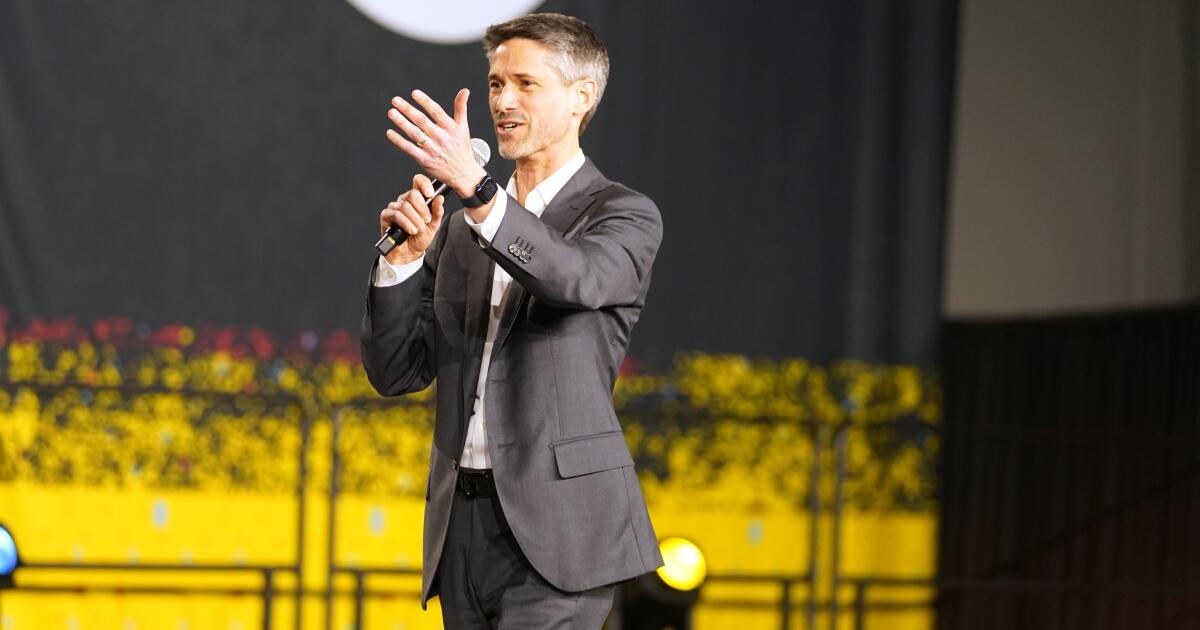Group spends $4.8 million on TV ads for Matt Mahan’s gubernatorial bid
An independent expenditure committee backed by Silicon Valley executives spent $4.8 million on television ads supporting San Jose Mayor Matt Mahan’s gubernatorial bid that will begin airing Thursday.
The two 30-second ads highlight the Democrat’s life story — being raised in a working-class family and working on a grounds crew and as a middle school teacher — and his accomplishments leading the state’s third-largest city.
Mahan’s parents “taught him the difference between nice to have and need to have,” a narrator says in one of the ads. “So as mayor of San Jose, Matt focused on the basics and delivered results on the things that matter most. The safest big city in America, a sharp drop in street homelessness and thousands of homes built. As governor, Matt Mahan will focus on results Californians need to have, like affordable homes, safe neighborhoods and good schools.”
The ads, which will air statewide on broadcast and cable TV, were paid for by an independent-expenditure committee called California Back to Basics Supporting Matt Mahan for Governor 2026.
The group has not yet filed any fundraising reports with the secretary of state’s office, but the ads’ disclosure says the top donors are billionaire venture capitalist Michael Moritz, luxury sleepwear company founder Ashley Merrill and Silicon Valley entrepreneur Michael Seibel.
Billionaire Los Angeles developer Rick Caruso, who considered running for governor or mayor of Los Angeles but ultimately decided against seeking either post, is involved in the effort, according to a strategist working for the committee who requested anonymity to speak about it.
The committee legally cannot coordinate with Mahan’s campaign, which he launched four weeks ago. Although Mahan lacks the name recognition of several other candidates in the crowded field running to replace termed-out Gov. Gavin Newsom, his fundraising prowess, notably among tech industry leaders, is notable. He has raised nearly $9.2 million in large donations since entering the gubernatorial race.
